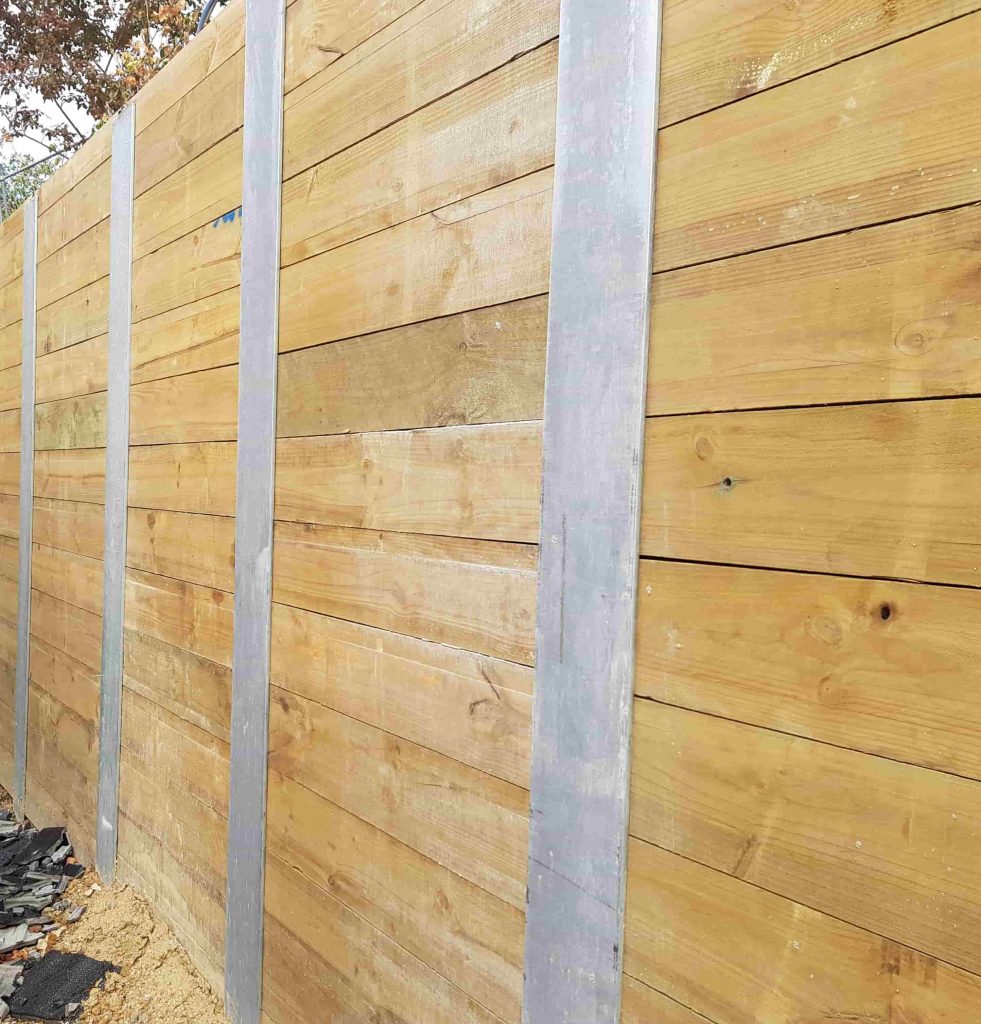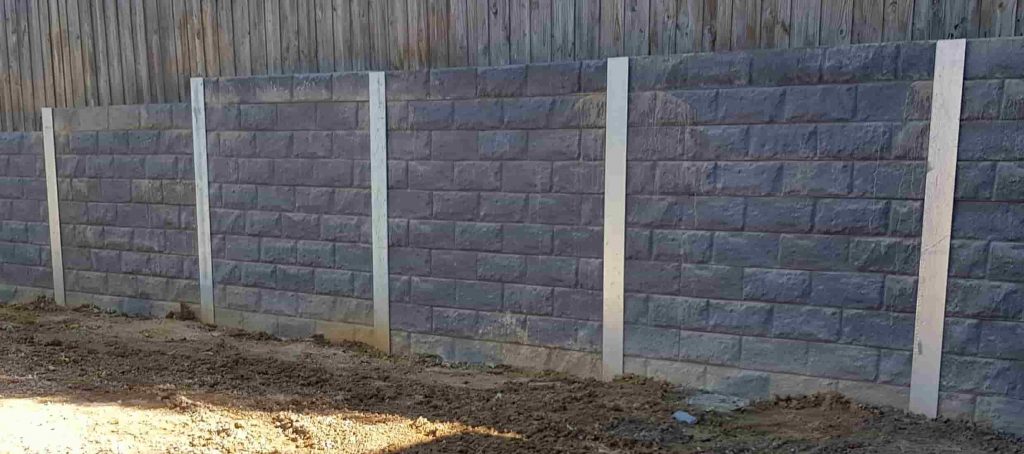Introduction
When it pertains to building a building or a landscape, the synergy in between designers and retaining wall builders is typically overlooked. Yet, this partnership is important for making sure toughness, aesthetic appeal, and structural stability. Maintaining walls serve not only as practical structures however likewise contribute substantially to the total design of a project. In this extensive article, we will dig deep into the complex relationship in between designers and retaining wall builders, exploring how their partnership results in effective construction outcomes.
Understanding Maintaining Walls
What Are Keeping Walls?
Retaining walls are structures developed to hold back soil and avoid disintegration on sloped landscapes. They come in different materials, including concrete sleepers, H beams, wood sleepers, timber sleepers, and stone. The choice of products impacts both the functionality and aesthetics of the wall.
Importance of Maintaining Walls in Construction
Retaining walls play an essential role in landscaping by:
- Preventing soil erosion Managing water drainage Creating functional land space Enhancing visual appeal
Their significance can not be overemphasized; they are vital for maintaining the stability of slopes and ensuring that structures above them stay stable.
Architects: The Visionaries Behind Designs
Role of Architects in Building And Construction Projects
Architects are responsible for picturing spaces that stabilize functionality with visual appeals. They develop designs that fulfill clients' needs while sticking to regional building codes and regulations.
How Architects Select Keeping Wall Solutions
Architects consider numerous factors when choosing keeping wall services:
- Site Conditions: Is the soil stable? What are the drain conditions? Aesthetic Appeal: How will the wall fit into the total design? Material Selection: Which materials will best serve the intended purpose?
They needs to team up carefully with keeping wall contractors to make sure that their visions can be executed effectively.
Retaining Wall Builders: The Practical Experts
Who Are Retaining Wall Builders?
Retaining wall home builders consist of specialists who specialize in constructing these essential structures. Their competence lies in understanding soil mechanics, material residential or commercial properties, and building and construction techniques.
Skills Required for Retaining Wall Installers
A proficient retaining wall installer should possess:
- Knowledge of engineering principles Experience with various materials (concrete sleeper, timber sleeper) Problem-solving abilities to deal with site-specific challenges
These skills allow them to perform plans laid out by architects efficiently.
Behind the Scenes: The Partnership In Between Architects and Retaining Wall Builders
The collaboration in between architects and maintaining wall contractors is a dance of creativity and practicality. On one hand, architects provide ingenious designs; on the other hand, home builders bring those designs to life through their technical competence.

This partnership ensures that innovative visions are recognized while preserving structural integrity.
Material Options in Retaining Wall Construction
Concrete Sleepers vs Timber Sleepers
Choosing between concrete sleepers and wood sleepers can be challenging for both architects and contractors. Here's a short contrast:
|Material|Pros|Cons|| -------------------|-----------------------------------------|-------------------------------------------|| Concrete Sleepers|Long lasting, low upkeep|Can be more pricey|| Wood Sleepers|Aesthetically pleasing|May require more upkeep gradually|
Both products have their special benefits depending upon project requirements.
The Engineering Aspect of Retaining Walls
Soil Mechanics 101 for Designers and Builders
Understanding soil mechanics is essential in designing efficient maintaining walls. Architects should think about aspects such as soil type, load-bearing capability, and drainage patterns when working together with retaining wall contractors.
Water Drainage Considerations
Effective water drain is important for avoiding hydrostatic pressure accumulation behind keeping walls. This pressure can compromise structural integrity if not managed correctly through correct design functions like weep holes or drain pipes.
Common Difficulties Faced Throughout Collaboration
Communication Barriers Between Professionals
Miscommunication can lead to substantial problems throughout building and construction jobs. Regular conferences in between architects and builders assist mitigate misunderstandings.
Budget Constraints Affecting Design Choices
Sometimes spending plan constraints force modifications in styles at first pictured by architects. Discovering economical services without jeopardizing quality requires teamwork from both sides.

Case Research studies Highlighting Successful Collaborations
Residential Job Case Research study: Hilltop Villa
In this case research study involving a luxury home on a hillside:
- Architects developed expansive terraces needing robust retaining walls. Builders made use of H beams along with stone facades for strength and beauty.
The result was not simply functional however also stunningly attractive!

Commercial Job Case Research study: Urban Plaza Development
Here's another interesting task:
- Architects envisioned an urban plaza complete with garden spaces requiring several retaining walls. Builders worked together successfully utilizing concrete sleepers for stability while preserving visual appeal through landscaping aspects integrated into the wall structure.
Both projects demonstrate how effective cooperation leads to exceptional outcomes!
FAQs
1. What is a maintaining wall?
A keeping wall is a structure developed to keep back soil from sloping landscapes or embankments to avoid erosion or collapse.
2. What kinds of products are utilized in keeping walls?
Common products consist of concrete sleepers, wood sleepers (wood), stone blocks (natural stone), H beams top-rated wall contractor Melbourne (metal), among others based on project requirements.
3. How do I choose an excellent keeping wall builder?
Look for experience level-- check reviews from previous customers-- and guarantee they comprehend local building codes as well as needed engineering principles associated particularly to your site conditions!
4. Why do I need a designer when constructing a maintaining wall?
A designer supplies vital design input customized particularly towards your requirements while considering visual preferences; plus they make sure compliance with guidelines throughout construction phases!
5. Can I build my own retaining wall?
While do it yourself tasks might appear enticing economically speaking-- it's smart consulting specialists first since inappropriate installation could lead major safety threats down line due absence knowledge about soil mechanics and so on.
6. What should I think about before setting up a maintaining wall?
Consider factors such as your site conditions (soil type/drainage), wanted aesthetics/material options readily available within spending plan restraints together with regulatory concerns pertaining where you live!
Conclusion
In conclusion, understanding "Behind the Scenes: The Cooperation Between Architects and Retaining Wall Builders" highlights how crucial it is for these 2 occupations to interact flawlessly towards successful task outcomes! Their collaborations not just boost performance however also raise visual appeal-- producing gorgeous areas we delight in every day! It's clear that neither celebration can achieve optimum results alone; therefore promoting strong relationships developed on trust mutual regard will ultimately lead all of us closer towards accomplishing our shared objectives within building industry!